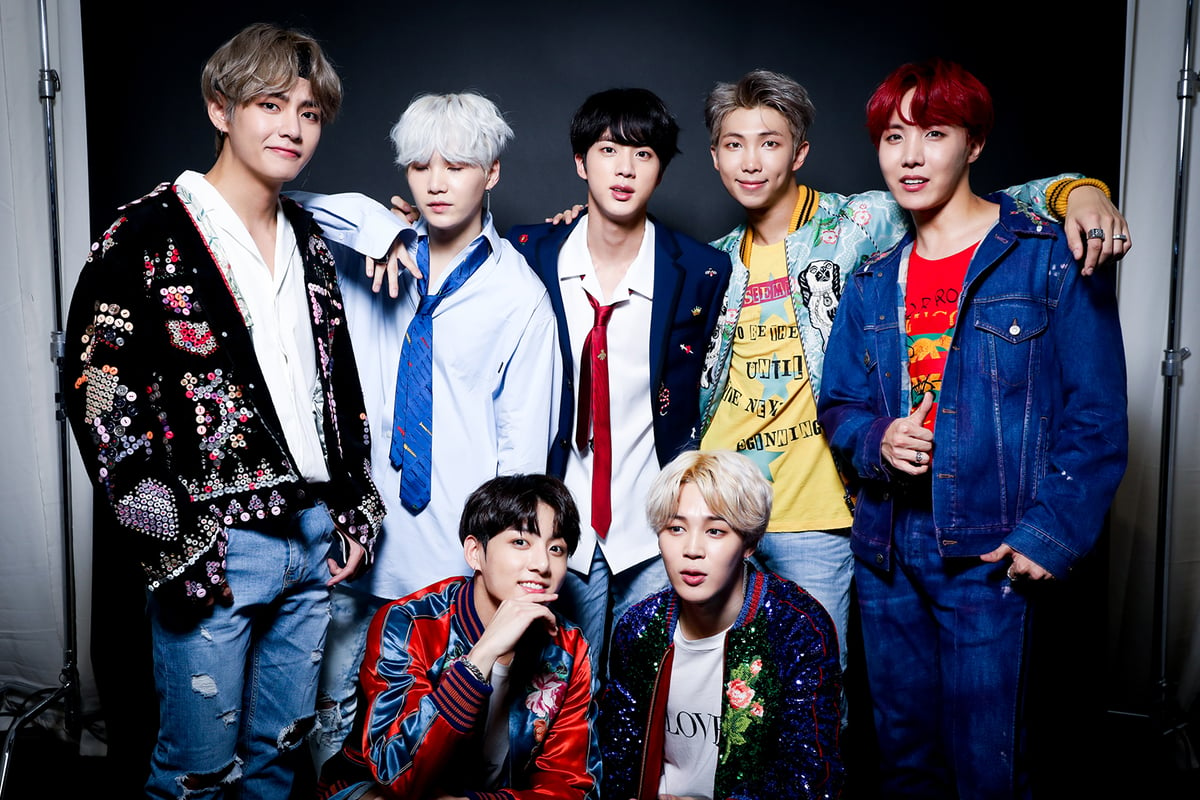Behind the scenes of BTS: How a K-Pop group became the ninth-most popular hashtag in Australia

As 2017 begins to draw to a close, Twitter has published its end of year summary, revealing the topics and personalities we have tweeted about the most in the last 12 months.
While it’s no surprise that Korean boy band BTS earned themselves the most engaged tweet in Asia for 2017 – with a single post generating 778,000 likes and 374,000 retweets – it may come as a surprise that the name of seven-piece band was also the ninth-most popular hashtag in Australia.
But for a band that has failed to appear on any of TMN’s charts, and only managed to spend two weeks on the Australian Spotify chart (peaking at #93), how did BTS prove to be almost as popular as the Australian Open this year?
Fan frenzies are nothing new, but we’ve come a long way since Beatlemania. Vevo’s music fan report from 2015 entitled “The Millennial Fan Tribes” already highlighted the power of social media when in the hands of music fans.
“The Millennial influence is changing the landscape of music and pop culture. With always-onconnectivity and social media, they have a limitless 24/7 reach,” Vevo CEO Erik Huggers wrote at the time.
“By instantly connecting with artists and global fan communities, they are crossing oceans and blurring borders. With digital platforms, they are discovering the-next-big-thing in unconventional ways, and helping lift these artists to the forefront of the music industry.”
And that’s exactly what has happened with BTS, with their fans (dubbed ‘ARMY’) making their presence felt online both in Australia and around the globe.

Jess from Australian BTS fan groupARMY Australia explained that Twitter has played a significant role in not only developing the loyal fanbase, but also fostering the relationship between the band and their fans.
“Through Twitter, BTS announce mixtape releases as well as covers of popular songs! For example, Jungkook and RM have done a cover of ‘Fools’ by Troye Sivan,” she told TMN.
“This allows fans to have a more personal look into the band and relate with them more [and] helps create a loyal and supportive fandom. It’s something all ARMY can appreciate since it also sets them apart from other K-Pop groups.”
“I think in this way, Twitter has helped BTS grow, but has also allowed ARMY to be a major part of that success and feel rewarded for it. Twitter has no barriers in terms of where you live, or where you can share things.”
But those on the outside shouldn’t be naive in thinking that the Australian BTS fanbase has less of an impact just because of their size – ARMY sees their well-executed activity as a global movement, with each region making a contribution.
Cammy from@AusArmyProject explained: “ARMY is very disciplined in the way that they show their unconditional support for BTS and often go to the lengths of organising voting and streaming projects which involves large collaboration efforts. This brings together fanbases from each country around the world, including AusArmyProject, and is often executed on the Twitter platform.”
“As part of a fandom, ARMY have a lot of campaigns and events where we tweet to show support to BTS. One of these was for the Billboard Awards where they were nominated for Top Social Artist,” Jess from ARMY Australia added.
“The fandom voted for that award via tweets – so we had a lot to prove! Just because Australia has a smaller BTS community, doesn’t mean we can’t show BTS any less support, and it definitely doesn’t stop us from participating in worldwide Twitter Mass Trending.”
With that level of fan frenzy, you’d be forgiven if you thought they were just another K-Pop band – the latest in a long string of manufactured groups with catchy names and even catchier tunes.
BTS fans are out to prove that this is far from the case, despite the group coming from South Korean entertainment company Big Hit Entertainment.
“The music BTS puts out is new and different to what everyone normally listens to. Although it does have language barriers, we can simply translate lyrics with the help of closed captions/subtitles,” Australian ARMY memberShirleysaid.
“But whether in Korean or not, their music isn’t restricted to just youths but it reaches out to people of all ages, both young and old. This is something not many artists can do nowadays.”
And it’s the destruction of these multiple barriers that has caught the eye and ear of Australian radio – which can only indicate bigger things for BTS in 2018.
“It’s amazing to see barriers between genres and countries being broken down in popular music, and BTS are an amazing example,” Hit Network host Ash London told TMN.
“It’s time for us to acknowledge K-Pop as more than just a niche genre with a niche fanbase.”






























